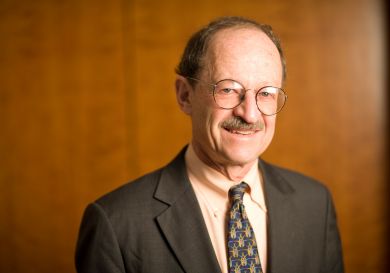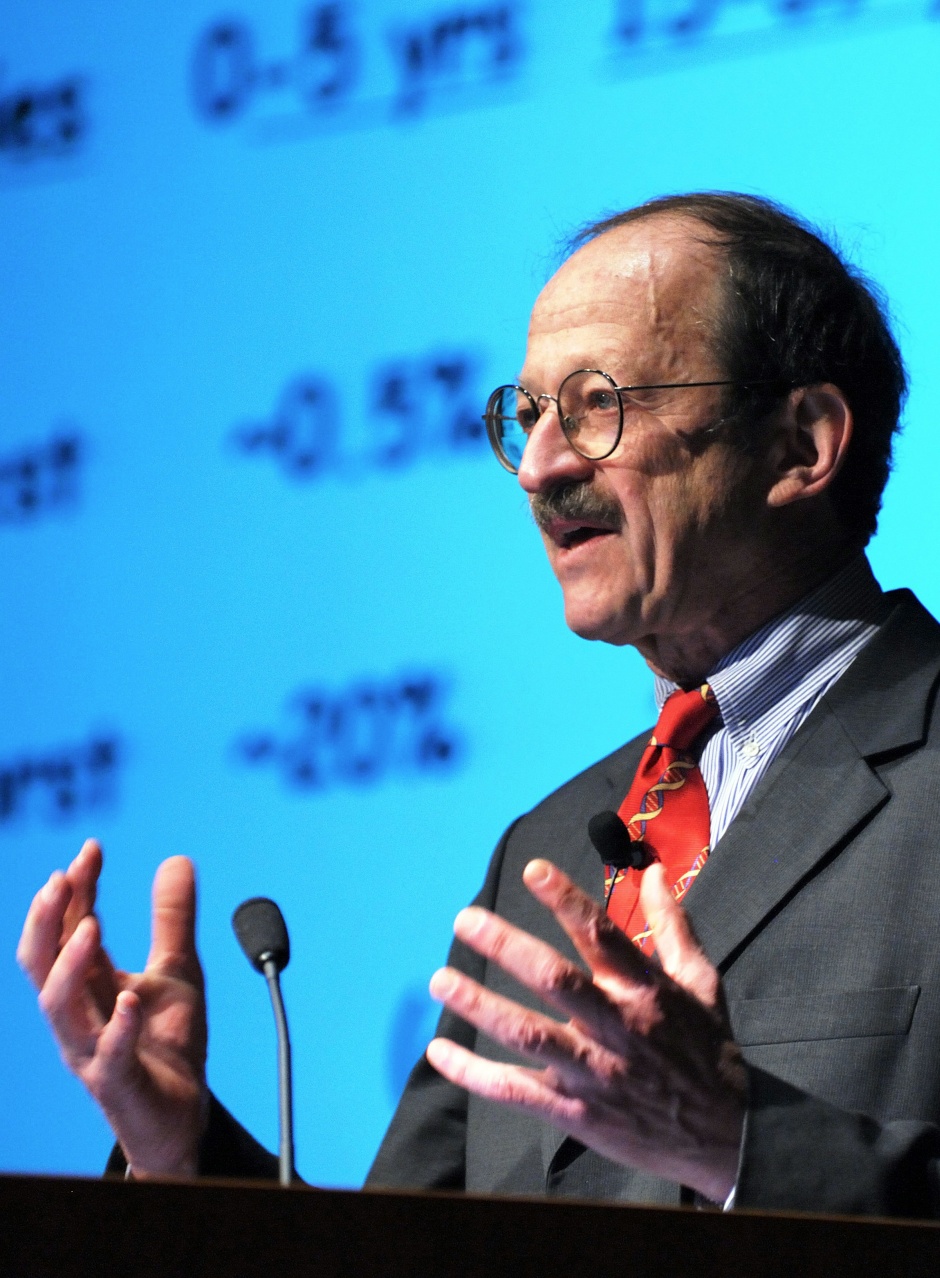Is the cure for cancer real or rhetoric?
President Barack Obama's State of the Union address announced a new national "moon shot" effort to cure cancer.
"For the loved ones we've all lost, for the family we can still save, let's make America the country that cures cancer once and for all," the President said.
But is finding a cure for cancer realistic or merely rhetoric?
"Is it realistic? In a word 'no,' " said Dr. Otis Brawley, the chief medical officer of the American Cancer Society. "In my world, 'cure' is a four letter word, but we are going to cure some people."
He said it's important to remember there are at least 200 kinds of cancer. Finding one "cure" to fix all of them is probably impossible.
"I firmly believe 50, 100 even 1,000 years from now, there will be people dying of cancer; however, I do believe that we can do better" to fight the disease. And the fight right now looks promising, cancer researchers say.
The scientific understanding of the diseases and the methods to treat it have improved enormously in even the past few years. Our better understanding of the human genome, the President's precision medicine initiative, collaborative big data projects and less toxic treatments have all given people with cancer real hope.
How far are we from eradicating cancer now?
Cancer death rates are down 23% in the past 21 years according to the American Cancer Society.
While one out of every four cancer deaths is because of lung cancer, the rate of new lung cancer cases has continued to decline as fewer people smoke.
Testicular cancer, Hodgkin's lymphoma and many adult cases of leukemia can be cured or at least turned into manageable or suppressed disease. Surgery can fix some skin cancers. Radiotherapy can cure cancer of the voice box and thyroid cancer. Advances in screening have helped detect breast cancers earlier which can then be cured. Even some ovarian cancers and lymphomas that don't go away completely can now be treated more like a chronic illness that can be managed if watched and treated.
Since Dwight D. Eisenhower mentioned cancer in his 1954 State of the Union address, presidents have talked about funding cancer research 15 times in the annual address.
President Obama has mentioned cancer in all but one of his State of the Union addresses. Finding a cure for this "mortal disease" as Eisenhower called it, has been a real priority for several administrations.
But in 1971, when President Richard Nixon urged scientists to use the "same kind of concentrated effort that split the atom and took man to the moon" to "conquering the dread disease" cancer was the second leading cause of death for Americans. It still is, and that's unlikely to change any time soon even with the focus from the top.
In 2016, experts predict there still will be 1,685,210 new cancer cases and 595,690 deaths from cancer in the United States, and that's expected to rise to 2.3 million cases per year by 2030.
"Curing cancer is tough and the biological variation in cancer types is profound and presents a big problem with all the different mutations in difference cancers," said Nobel Prize-winning scientist Dr. Harold Varmus.
Varmus is the former director of the National Cancer Institute that Nixon's "war on cancer" created. He is on faculty at the Weill Cornell Medical College.
"Cancer is an important political cause because it is a mortal disease that we fear, but we fear it much less with the enormous successes we have seen since Richard Nixon's time."
The time is right, even if it's not for a cure
Even the mere mention of cancer in the State of the Union speech should make a difference according to presidential rhetoric scholar Mary Stuckey.
"What presidents say helps set the agenda for the public and for the media," said the professor of communications and director of graduate studies at Georgia State University. "Then see how much money they really they put behind the idea, and you will see how much they really meant it."
Naming the vice president to head the effort demonstrates commitment, experts said. Biden who lost his son to cancer, has already been working with Congress to "give scientists at the National Institutes of Health the strongest resources they've had in over a decade," the President said
"We are making progress with a much more rapid rate than ever, especially compared to my early days in the field," Varmus said. "We have a totally different understanding of basic science, and we are working closely together with clinicians in ways that were never possible 20 to 30 years ago."
Dr. Wally Curran, the executive director at the Winship Cancer Institute at Emory, thinks this presidential priority comes just in time.
"If we had this happen during the Reagan era, we didn't have the science to take this far enough," Curran said. While he doesn't think a total cure is possible, more research funding and leadership on the issue will improve people's life expectancy and make living with more cancers akin to managing a chronic disease.
"We don't have a cure for high blood pressure or diabetes, but people live good lives for years if these disease are managed."
Cancer researcher Barrie Bode agrees that a cancer "cure" is unlikely and adds "when I have given that answer it is a disappointment to a lot of people," but he too thinks the science is closing in on making this something "that we will be able to effectively manage," Bode said.
Next steps tor progress
Bode, who is the chair of the department of biological sciences, said that there is such great momentum in the cancer fight that even in his small lab at Northern Illinois University he doesn't have room for all the people who want to work on the breast, brain and liver cancer projects the lab has underway.
He gets applications from scientists from all around the world.
"It is one of the remaining strengths we have in a global economy, our scientific training," Bode said. He hopes having this interest from the top may help change visa requirements to improve the country's cancer fight.
"It would be nice to be able to keep some of these researchers here."
To advance the cancer cause, Dr. Brian Bolwell believes there will also need to be more "rationality about how cancer drugs are priced" as more therapies become available.
As the chair for the Taussig Cancer Institute at the Cleveland Clinic, Bolwell said they are always working on ways to become more efficient and help control costs and develop better total care.
"The thing that throws both into jeopardy are the costs," he said. A government initiative to encourage collaboration would go a long way.
In a statement released after the speech, Biden mentioned that he will encourage collaboration as a key initiative to share the research that is "trapped in silos, preventing faster progress and greater reach to patients." Brawley thinks that will help.
"I think a person who is in command and control of a cancer program can get us all moving in the same direction rather than competing and trying to hang onto our findings. When we share our findings, we are better for it," Brawley said.
The NCI makes data from the sequencing of thousands of tumors available to all researchers, and there are other big data sharing efforts such as ASCO's CancerLinQ rapid-learning system, but clinical research data is harder to come by, Varmus said.
Varmus also said making reimbursement a priority, especially from Medicare and Medicaid, will also be key. Only 5% of cancer patients get into clinical trials.
And finally, to reduce cancer rates, Americans are going to have to listen to science, Brawley said.
He points to Western Europe, which has lower cancer death rates even with the existing technologies. Positive health behaviors can reduce your cancer risk -- quit smoking, lose weight and reducing sun exposure combined with research can move the country closer to a "cure" of sorts, Brawley said.
"Then I think it is possible that over the next couple of years, we're going to have more people with certain types of bad (cancers) ... who are going to live (for a) prolonged high quality time in peaceful coexistence with their disease."
This article first appeared on CNN.com. Read the original here.
Other coverage:
- ‘Moonshot’ to Cure Cancer, to Be Led by Biden, Relies on Outmoded View of Disease - New York Times
“This is not about getting to one point in a certain period of time,” said Dr. Harold Varmus. - Can the U.S. Really Cure Cancer? - WNYC, The Takeaway
- Seven ways to tell if 'cancer moonshot' is legit, or political rhetoric - STAT
- Biden to lead national effort to cure cancer - Bloomberg
- Cancer 'Moonshot' aims to speed fight against No. 2 killer - Press Telegraph




